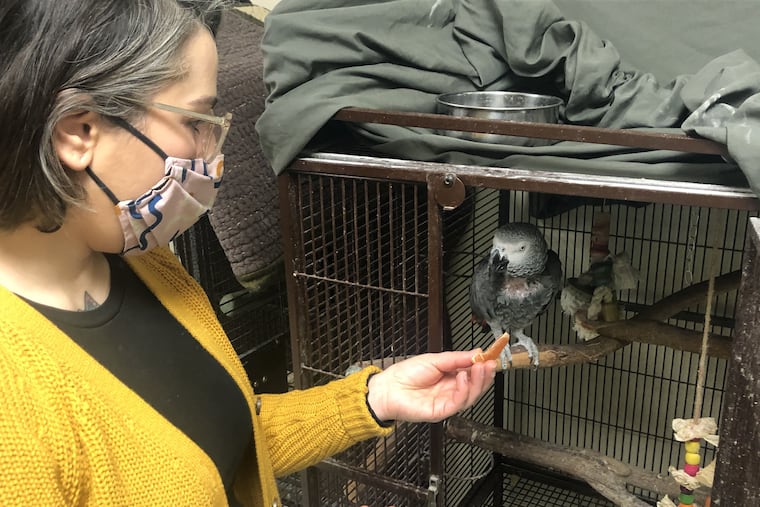Head of nonprofit ACCT Philly, the city’s contracted animal shelter, resigns
Aurora Velazquez is leaving amid an ongoing dispute with some shelter activists and volunteers.

Aurora Velazquez, the executive director of ACCT Philly, the nonprofit that contracts with the city to provide animal shelter and control services, is resigning amid an ongoing dispute with some local shelter activists and volunteers.
“In the last two years, we have made great strides forward, while also having continued to face challenges. However, it has also become clear to me that my goals and values do not seem to align with those of the community. The current dynamic isn’t working, and while it is bittersweet, I believe that what is best for the organization as well as for me personally, is to step down,” Velazquez said in a statement released late Wednesday afternoon by ACCT.
The nonprofit said its board of directors accepted her resignation Wednesday. Velazquez will remain with the organization through early November. Meanwhile, the board will be looking at the organization’s structure before moving forward with a search for a replacement, ACCT said.
“We are grateful to Aurora for her leadership and all that she has accomplished for the organization in the last two years. The City remains committed to supporting ACCT Philly, and we wish her the best moving forward,” board cochair Joanna Otero-Cruz said in a statement.
Velazquez, who joined ACCT Philly in November 2019, started this year on a positive note.
For the first time in the organization’s history, it achieved a 92% live release rate — or save rate — in January, which means that animals that came into the shelter were not euthanized but instead adopted or went to rescues.
That surpassed the 90% industry standard for being considered a no-kill shelter and ACCT Philly did it during a pandemic and with an $890,000 cut in its city contract last year, from $4.6 million to $3.7 million.
Historically, ACCT Philly has been one of the lowest-funded animal and control organizations among major U.S. cities, and the cut — which didn’t come with any change in the services ACCT is required to perform, like picking up and accepting strays, taking in pets in police or death cases, and capturing wild animals.
Because ACCT Philly cannot turn away animals, its shelter is chronically over capacity.
In her resignation statement, Velazquez added that she was “proud of what we have accomplished during this time,” citing an average live release rate this year of 86%, completing a welcome center and acquiring additional space, and upgrading and installing new kennels.
However, a state inspector conducted an on-site review of ACCT’s North Philadelphia facility in late July and filed a report that said the sanitary conditions at the facility were unsatisfactory and added a note saying: “A referral for cruelty was made based on the sanitation issues during this inspection.”
The Pennsylvania SPCA, which received that referral, in mid-September reported that it had conducted its own investigation and determined that ACCT had not violated Pennsylvania’s cruelty code, but improvements were needed and outside assistance was being provided.
Late this summer, an online petition was launched demanding the resignation of Velazquez and two other senior staff members. The petition alleged that certain specific animals had been mistreated, services had deteriorated, employees had quit because of the worsening situation, and ACCT had been hostile to some volunteers.
On Saturday, ACCT Philly posted allegations on its Facebook account that a former employee had accessed the organization’s internal computers and had shared “stolen” records with activists mounting a campaign against ACCT’s leadership.
“The damage of this effort is lasting and has gone beyond maligning the organization, resulting in personal attacks on individual staff, impacting fundraising, placement of animals, and even rising to the level of death threats to some shelter personnel,” ACCT wrote on its Facebook page, in a post that prompted an onslaught of negative reactions to its leadership.
ACCT Philly took its current form in 2012 as a nonprofit contracted by the city to perform animal control services. The organization has long suffered from a host of problems, including a revolving door of executive directors and a disease outbreak in 2019 that forced dogs to be placed in tents outside. At its lowest point in August 2013, ACCT Philly had a live release rate of just 50%.